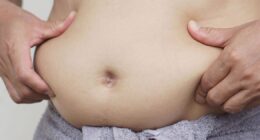This Dr. Axe content is medically reviewed or fact checked to ensure factually accurate information.
With strict editorial sourcing guidelines, we only link to academic research institutions, reputable media sites and, when research is available, medically peer-reviewed studies. Note that the numbers in parentheses (1, 2, etc.) are clickable links to these studies.
The information in our articles is NOT intended to replace a one-on-one relationship with a qualified health care professional and is not intended as medical advice.
This article is based on scientific evidence, written by experts and fact checked by our trained editorial staff. Note that the numbers in parentheses (1, 2, etc.) are clickable links to medically peer-reviewed studies.
Our team includes licensed nutritionists and dietitians, certified health education specialists, as well as certified strength and conditioning specialists, personal trainers and corrective exercise specialists. Our team aims to be not only thorough with its research, but also objective and unbiased.
The information in our articles is NOT intended to replace a one-on-one relationship with a qualified health care professional and is not intended as medical advice.
July 3, 2024
Can a glass of beetroot juice a day keep the doctor away? According to recent research published in Frontiers in Nutrition, it just may help postmenopausal women avoid a visit to the cardiologist.
That’s because beet juice helps stimulate the production of nitric oxide, a vital chemical messenger that promotes circulation and blood flow. This is important for postmenopausal women considering they often face an increased risk of cardiovascular disease and increased blood pressure.
So what exactly did the study find? Let’s find out.
Study Results
A team of researchers from Pennsylvania State University, Edith Cowan University, the University of Western Australia, Wake Forest University and the University of Leeds sought to determine if nitrate supplementation in the form of beetroot juice could help reduce heart disease risk factors in postmenopausal women.
The study authors noted that “cardiovascular disease (CVD) is the leading cause of death in women, with increased risk following menopause. Dietary intake of beetroot juice and other plant-based nitrate-rich foods is a promising non-pharmacological strategy for increasing systemic nitric oxide and improving endothelial function in elderly populations.”
To see if that promise worked in practice, they conducted a randomized, placebo-controlled, double-blind, crossover clinical trial on postmenopausal women to see the effects of nitrate supplementation through drinking beet juice had on “resting macrovascular endothelial function and endothelial resistance to whole-arm ischemia–reperfusion (IR) injury at two distinct stages of menopause.”
Women were broken up into an early-postmenopausal group (last menstrual period one to six years ago) and a late-postmenopausal group (more than six years since last menstrual period). Each group had women consume nitrate-rich beetroot juice and nitrate-depleted beet juice every day for a week.
The study participants drank nitrate-rich beet juice every morning for seven day, and then after several weeks, they drank beetroot juice without nitrate.
Researchers found that the nitrate-rich beet juice boosted blood flow compared to the placebo without nitrate. However, the researchers noted that the benefits to the blood vessels went away after 24 hours of drinking beet juice.
Ultimately, they concluded that drinking beet juice daily can help protect heart health in postmenopausal women, but it’s dependent on the timing of supplementation since the effects wear off after 24 hours.
Thus, in order to get consistent heart-boosting benefits from drinking nitrate-rich beetroot juice, postmenopausal women should make it part of their daily routine.
Other Beet Juice Benefits
In addition to aiding blood flow and heart health, beetroot juice also may help:
Many of these benefits are due to the ability to stimulate nitric oxide. Other ways to get more nitric oxide include eating:
- bananas
- arugula
- Swiss chard
- spinach
- lettuce
- oranges
- endive
- pomegranate juice
- leeks
- parsley
- dill
- radishes
- cauliflower
- celery
- carrots
- broccoli
- cucumbers
- fennel
- turnips
- cabbage
- beets
In addition, supplementing with arginine and citrulline can boost nitric oxide levels.





